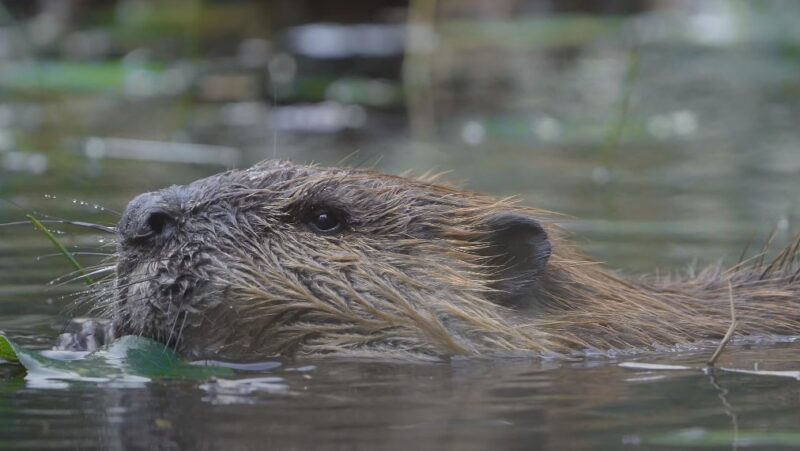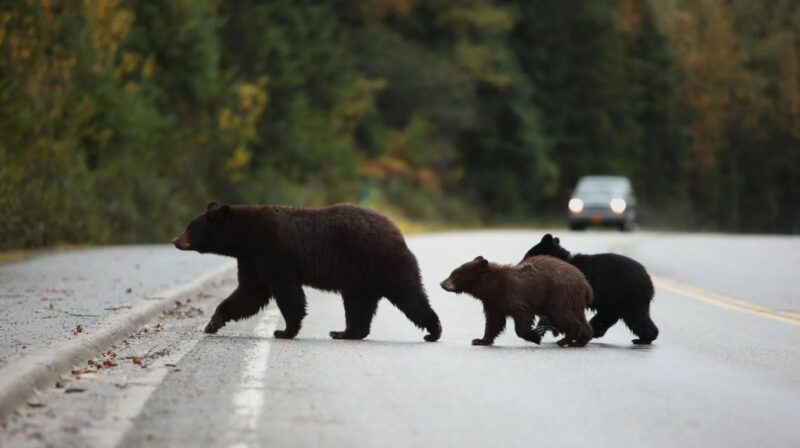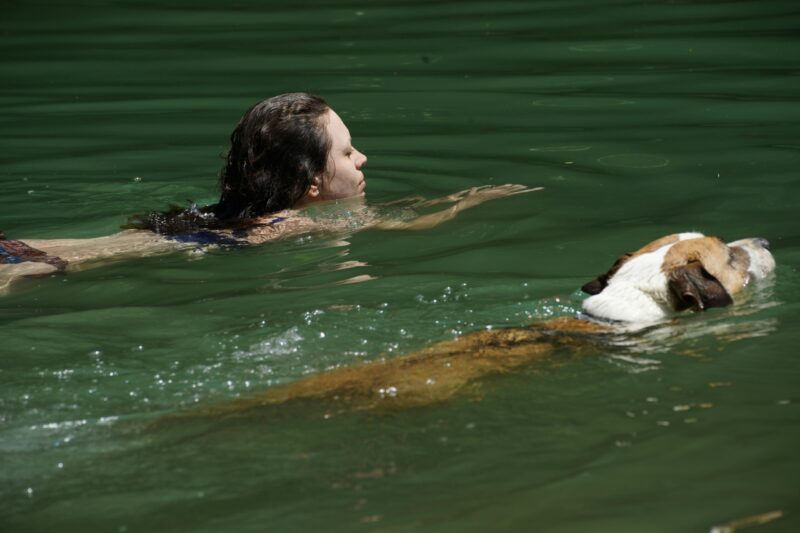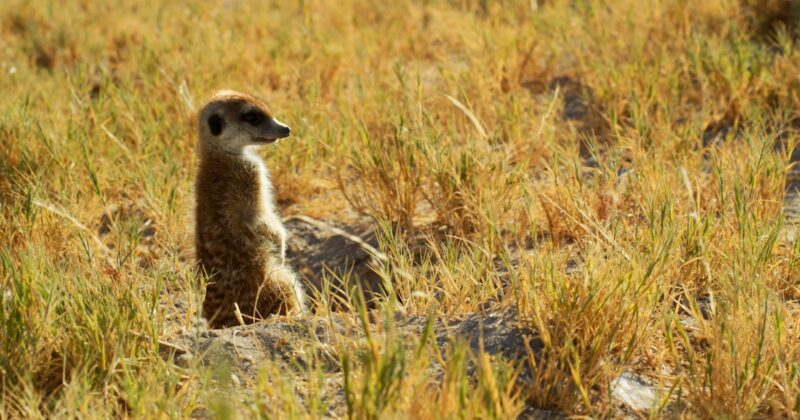You may have thought about having a beaver as a pet. But they are not easy to keep at home. There are many things you need to know and do before you get one. This article will tell you about the problems and rules of having these special animals as pets.
An Overview
Well, the first question is: Is it legal to have a beaver as a pet? If that is the case, you should consider some special needs this animal have. When it comes to the US, the states where you can legally keep one are Arkansas, Florida, Indiana, Kentucky, Michigan, Missouri, Nebraska, North Dakota, and Texas.
When it comes to other countries, we know that you can adopt it in Canada. Also, the safety is questionable. While it can adopt to people, these animals have a habit to chew on different things, especially wood. It could be a problem if you decide to keep one in your home.
We also have to mention the great benefits beavers are bringing to the nature, with their artificial dams that are filtering water and allows other species to thrive in such ecosystems. More attention from people is also required. We all must take further steps in saving beavers and their natural habitat.
Can You Keep a Beaver as a Pet?
The first thing to focus on is about the legality. In the majority of U.S. states, it’s illegal to domesticate it. This law is grounded in the need to protect both the animals and potential owners from harm. These animals, by nature, are not domestic creatures and require specific environmental conditions to thrive.
These animals are known for their complex behaviors, which are difficult to replicate in a household setting. They demand a vast water habitat, mimicking their natural dwelling. Imagine the impracticality of maintaining a large pool or tank in your backyard; it’s not only a massive undertaking but also a commitment of resources and time.
Their nocturnal nature poses another challenge. If your daily schedule is aligned with the sun, you’ll find it tough to sync with its active hours. This mismatch can lead to stress for both you and the animal. When it comes to social needs, they are community-oriented animals. They are accustomed to living in groups, and isolating them can lead to distress and behavioral issues.
This aspect alone makes them unsuitable for a typical pet-owner relationship, where the animal often lives without the company of its species. Moreover, these interesting creatures play a crucial role in the ecosystems. Marked as keystone species, their presence and activities significantly shape their environment.
By creating dams, they contribute to habitat creation and water purification. Keeping them as pets disrupts this ecological balance. We also have to mention the tendency of beavers to chew on wood to maintain their teeth is another factor to consider. Your furniture and home structures could be at risk, as this behavior is an ingrained survival instinct for them.
Where Can You Keep a Beaver as a Pet?
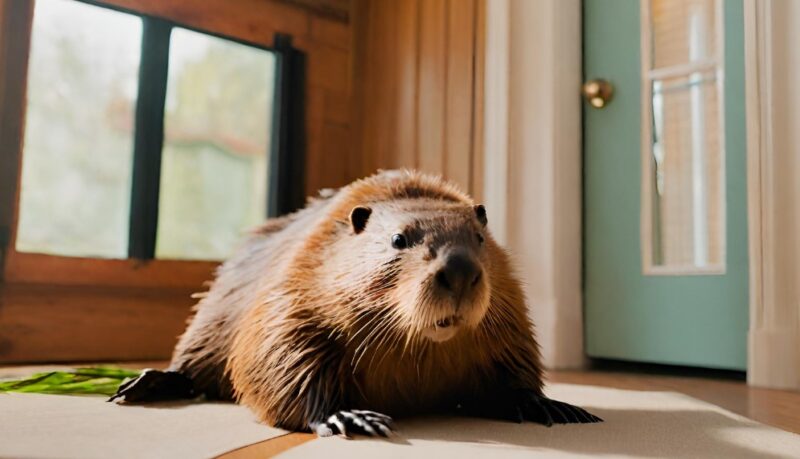
As we already mentioned, most states forbid us from keeping this animal as a pet. The exemptions are Arkansas, Florida, Indiana, Kentucky, Michigan, Missouri, Nebraska, North Dakota, and Texas. Each of these states has its own set of requirements for keeping a beaver as a pet. For example, Arkansas requires proof that the animal was acquired legally, while Missouri allows it if you have a Wildlife Hobby Permit.
Kentucky not only requires a special permit but also mandates specific confinement requirements. Regarding other countries, it is reported that these animals are legal to be kept as pets in Canada. It is interesting how different parts of the world also have some exotic species as pets. For example, there are several breeds of monkeys that you could adopt.
Is it Safe to Keep a Beaver as a Pet?
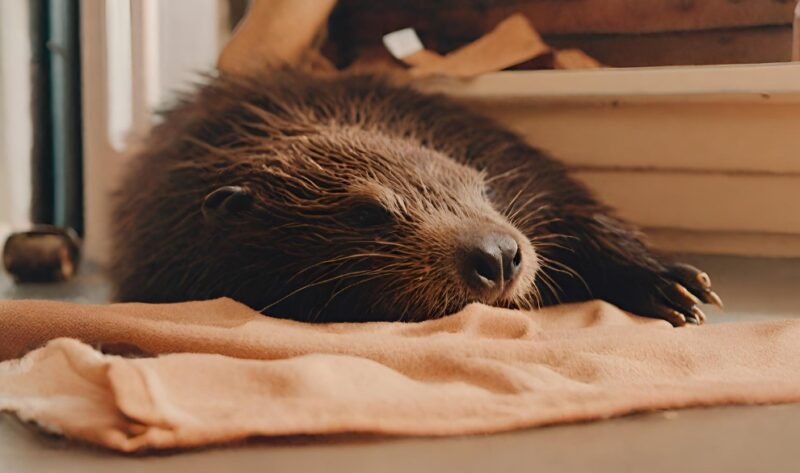
The safety of keeping one as a pet is a complex issue. Beavers, being wild animals, can carry diseases that are transmissible to humans. These diseases can pose serious health risks. Additionally, these animals have powerful jaws and sharp teeth. If they feel threatened or confined in a domestic setting, they may bite, leading to potential injury.
Behavioral Challenges
Beavers are not naturally inclined to live in human environments. They have specific behaviors and needs that are difficult to manage in a home. For instance, their instinctual need to chew can lead to destructive behavior, as they might gnaw on furniture, walls, or other household items. This can not only damage your property but also pose safety risks to both the animal and the residents.
Stress and Health
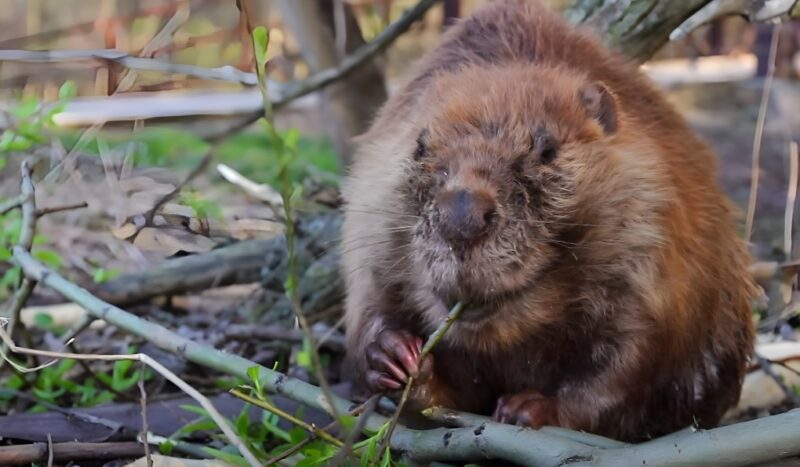
In a domestic setting, they can experience high levels of stress due to the lack of a natural habitat. This stress can manifest in various health problems and abnormal behaviors. Without the ability to perform their natural activities, such as swimming and dam building, beavers may become lethargic or display signs of anxiety and depression.
Nutritional Concerns
Ensuring a proper diet in a domestic setting is challenging. Beavers have specific dietary needs that are not easily met in captivity. Failure to provide the right nutrition can lead to health issues, ranging from digestive problems to more severe nutritional deficiencies.
Why Are Beavers Important for the Environment?
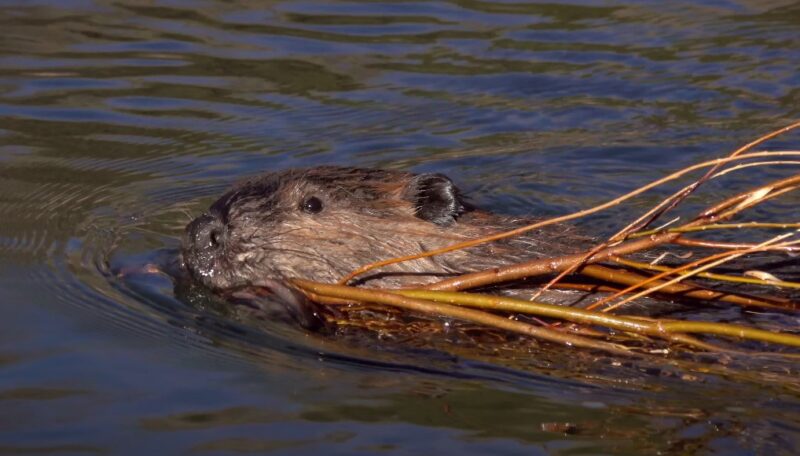
Beavers, often hailed as ecosystem engineers, play a very important role in shaping and maintaining the environment. Their natural activities bring about significant ecological benefits that extend far beyond their immediate habitat.
Natural Water Management
One of the most notable contributions to the environment is their ability to manage water systems. By building dams, beavers create wetlands – a critical ecosystem that serves numerous functions. These wetlands act as natural sponges, absorbing and slowly releasing water. This process helps in mitigating floods and maintaining water levels during dry periods, thus ensuring a more stable water supply for various forms of life.
Biodiversity Hotspots
The wetlands and ponds created by beaver dams are biodiversity hotspots. They provide habitat for a wide range of species, including fish, birds, amphibians, and insects. These habitats are crucial for breeding, feeding, and shelter. The diversity of life supported by their activities is a testament to their role in enhancing biodiversity. In areas where these animals are active, there is often a noticeable increase in the number and variety of species.
Water Purification
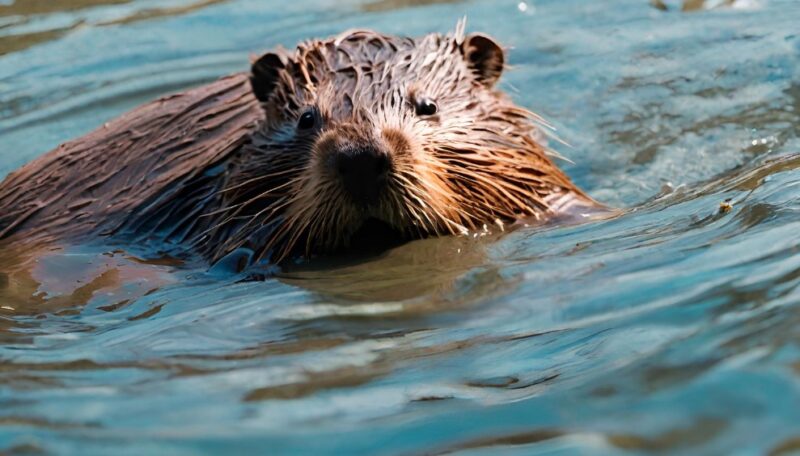
The ponds play a significant role in water purification. As water passes through the wetlands, sediment and pollutants are filtered out. This natural filtration process results in cleaner, clearer water, which is beneficial for both wildlife and humans. The slow-moving water in ponds allows for the breakdown of pollutants, further contributing to the health of water systems.
Soil Enrichment
The activities of these animals also lead to soil enrichment. The wetlands created by their dams are rich in organic matter, providing fertile ground for plant growth. This enriched soil supports a variety of plant species, which in turn support a diverse range of wildlife. The continuous cycle of growth and decay in these wetlands contributes to the overall health and fertility of the ecosystem.
What Are the Biggest Threats to Beavers’ Natural Habitat?
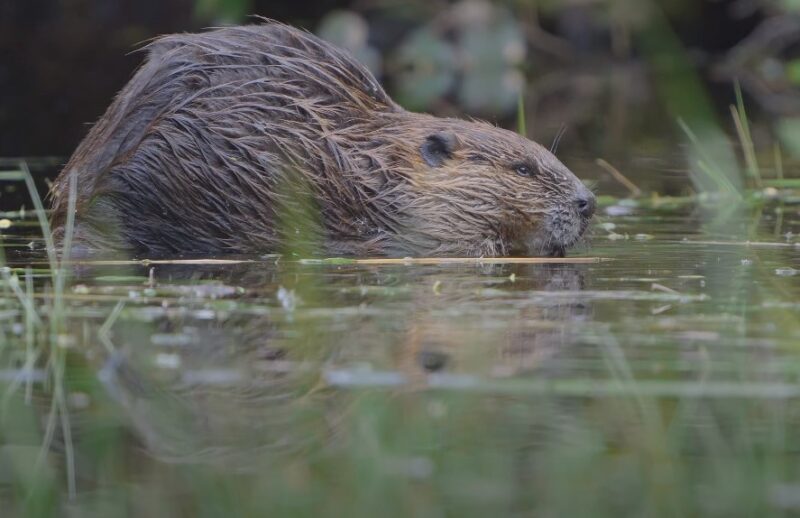
Beavers and their habitats are in danger from many factors. To protect these amazing animals and their environment, we need to learn about the problems they face.
Habitat Destruction
The most direct threat is habitat destruction. Urbanization, agricultural expansion, and industrial development often lead to the clearing of forests and draining of wetlands, which are critical for their survival. The loss of trees and natural water bodies directly impacts beavers’ ability to build dams and lodges, essential for their living and breeding.
Climate Change
Climate change is altering ecosystems globally, and their habitats are no exception. Changes in temperature and precipitation patterns can disrupt water availability, impacting the ecosystems where they live. Droughts can dry up water sources, while unpredictable flooding can destroy beaver dams and lodges, making it difficult for them to sustain their habitats.
Pollution
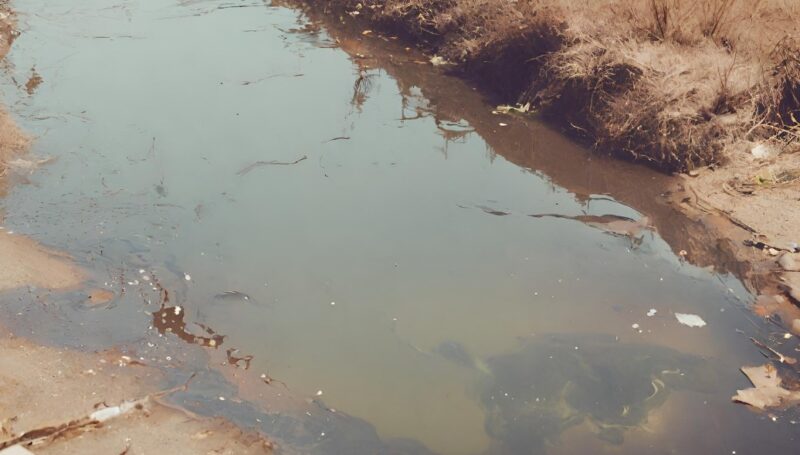
Water pollution from industrial runoff, agricultural chemicals, and urban waste poses a serious threat to their habitats. Pollutants can contaminate the water and soil, affecting the plants and animals they rely on for food. Additionally, pollution can lead to diseases in beaver populations and disrupt the delicate ecological balance of their habitats.
Overhunting and Trapping
Historically, these creatures were extensively hunted and trapped for their fur and castoreum. While this is less common now due to legal protections, illegal hunting and trapping still pose a threat in some areas. This not only reduces the populations but can also lead to a breakdown in the ecosystem structures they help maintain.
FAQs
Are beavers friendly animals?
Beavers are not friendly to humans or other animals. They are naturally wild with territorial behaviors, meaning they see encroaching animals and humans as threats. Beavers can exhibit aggressive behaviors like biting or scratching and may attack humans when infected by rabies. It is uncommon to find a gentle beaver in both the wild and captivity.
Are beavers intelligent?
Beavers are extremely gentle and highly intelligent animals. They have advanced brains with relatively large cerebrums, which indicate conscious thinking and problem-solving abilities. They also have large cerebellums, which allow them to move within a three-dimensional space (such as underwater) similar to tree-climbing squirrels. Beavers are master builders, city planners, architects, hydroengineers and contractors.
What is the lifespan of a beaver?
The average lifespan of a beaver in the wild is 10-12 years. They can live up to 19-20 years, but this is uncommon. When they get old, they also get slow and more susceptible to diseases. In captivity, beavers can live up to 24 years.
Can you own a beaver in the UK?
No, you cannot own a beaver in the UK. Beavers are wild animals and are not suitable as pets. They have specific dietary and habitat requirements, and they can cause damage to property and infrastructure with their gnawing and dam-building behaviors. Keeping a beaver as a pet would also require a license under the Wildlife and Countryside Act 1981, which is only granted for scientific or conservation purposes.
Last Words
Their complex needs and significant role in the ecosystem make them unsuitable for domestication. The legal restrictions in most U.S. states, and the detailed requirements in the few where it’s permissible.
The wetlands created by their dams are crucial for many species and play a significant role in maintaining ecological balance. However, the natural habitats of beavers are under threat from various factors, including habitat destruction, climate change, pollution, and human interference.


